|

SEPT 25
2014 - IMO HQ LONDON
Established in 2005 by a UN resolution on a recommendation from the International Maritime Organization (IMO), World Maritime Day is an annual celebration – usually during the last week of September – that aims to draw attention to the challenges and importance of maritime issues in the management of the global economy.
UN Secretary-General Ban Ki-moon
is quoted as saying:
“At a time when the world is beset by conflict and crisis, it is easy to forget that, day in and day out, the international shipping industry works quietly and efficiently to keep the wheels of global trade in motion and ensure the timely delivery of the goods and
commodities. On World Maritime Day, let us recall the often unheralded but always vital contribution by international shipping to peoples and communities all over the world.”
The day is also used to focus attention on the importance of shipping safety, maritime security and the marine environment and to emphasize a particular aspect of IMO's work, each year with a theme – this
year it is: "IMO Conventions: Effective
Application." This theme is reflected in IMO’s work throughout the year.
According to the IMO, this year's theme was chosen to provide an opportunity to shine a spotlight on those IMO treaty instruments which have not yet entered into force, as well as those for which ratification by more States and more effective implementation would yield significant benefits.
To celebrate World Maritime Day 2014, a traditional diplomatic reception will be held at IMO Headquarters today, followed next month by the World Maritime Day Parallel Event consisting of lectures and workshops in
Morocco from October 27-29.
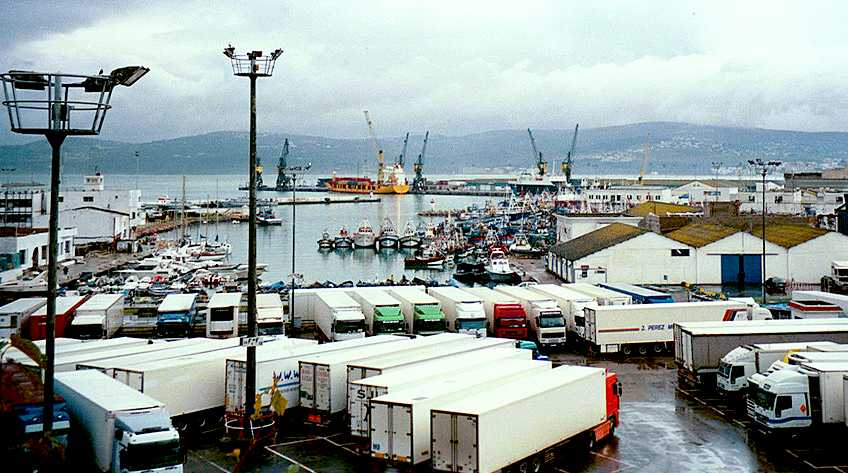
PAST
LOCATIONS
Several countries
participated in the competition to host this event, which has taken place
over the last five years in: USA, Italy, Argentina, Bahrain and Peru.
Morocco
the host this year, to be celebrated in Tangiers from 27 to 29 of October 2014.
This event will also be marked by the presentation of the heritage and the maritime potential of Morocco. It will
be an opportunity to introduce participants to the maritime and port facilities in the Tangier region located at the point between the
Atlantic and the Mediterranean
Ocean and on the Strait of Gibraltar.
AGENDA
- CHALLENGES FOR MOROCCO
This event will be an opportunity for the Kingdom of Morocco to:
> enforce the possible role of Morocco in the field of the regional and international cooperation to promote the ideals of the
IMO;
> remind the national and international public opinion the importance of the maritime sector as a strategic vehicle for the socio-economic development of Morocco;
> promote strategies and actionable plans in the various branches of national maritime activities to the investors and the maritime industry worldwide ;
> defend the position of a Morocco that can serve as a platform to relay maritime operators to different continents ;
> provide a meeting place for the benefit of national public and private operators to seal partnerships with their foreign counterparts on core projects;
> learn from the experiences and knowledge that will be exhibited, exchanged and discussed during this event.
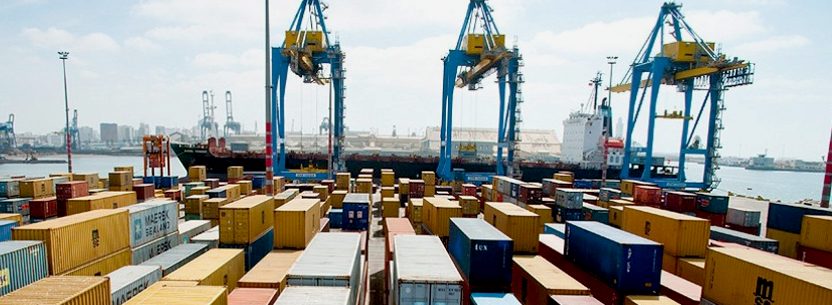
MAIN THEMES
> Missions to the International Maritime Organisation
> Main groups of IMO Conventions
> Effective implementation of IMO Conventions
> Economic promotion of maritime and port sectors
> Investment and partnership opportunities
> International Development of shipping & maritime services …
PARTICIPANTS
Regional and international Governmental and Non-Governmental organizations:
> International Maritime Organization (IMO) (General Secretary, Chairman,
etc)
> International Compensation Fund (IOPC)
> International Satellite Telecommunications Organization (ISTO)
> Union for the Mediterranean (UFM)
> Arab States League
> European
Commission(EC)
> Mediterranean Regional Centre for Emergency Response Against Marine Pollution (MRCERAMP)
Moroccan Institutions:
> Ministry of Works, Transport and Logistics;
> Department of Marine Fisheries;
> Ministry Delegate for the Environment;
> Moroccan Agency for Development of Logistics (MADL)
> National Ports Agency (NPA)
> Tanger-Med Port Authority (TMPA)
> Port of Nador West Med….
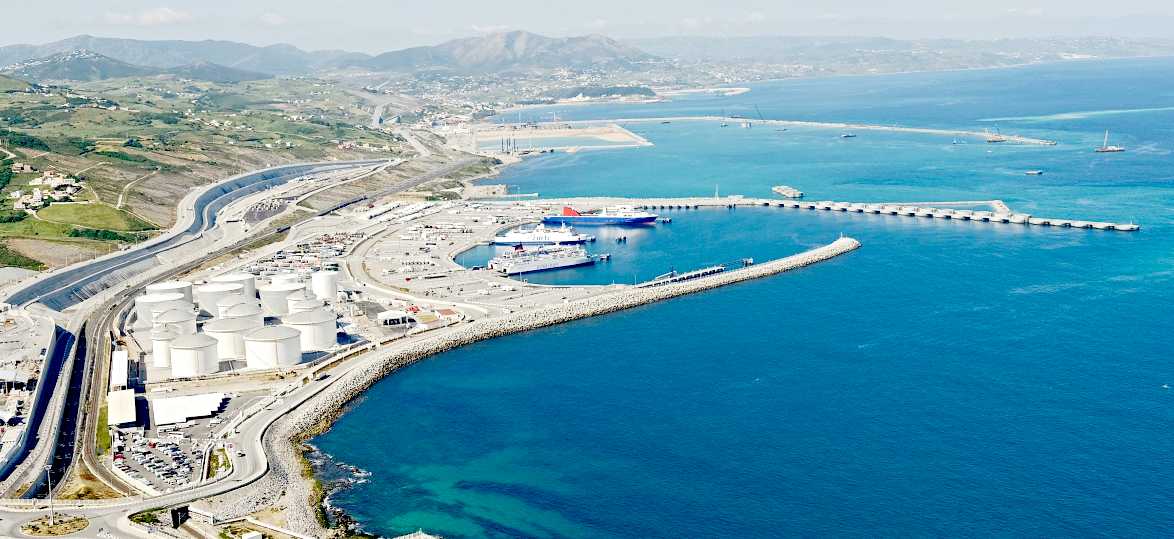
SPEAKERS
Mr. Jeffrey
Lantz, Chairman, IMO Council: "Realization of IMO objectives through the adoption of international maritime conventions and
regulations"
Mr. Kofi Mbiah, Chairman, IMO Legal Committee: "The IMO mandate in the process of preparing maritime conventions"
Ms. Nancy W.
Karigithu, Chairman, IMO Technical Cooperation Committee: "Promotion of the ratification and effective implementation of IMO conventions through the Integrated Technical Cooperation Programme supported by the Country Maritime Profile module: the experience of Africa"
Mr. José Maura, Director, IOPC Funds: "Effective implementation of IMO conventions: conventions relating to compensation and liability regimes with reference to the Civil Liability Convention and the International Convention on the Establishment of an International Fund for Compensation for Oil Pollution
Damage"
Mr. Andrew
Winbow, Director, Maritime Safety Division, IMO: "Safety of passenger transport vessels"
Mr. Frederick Kenney, Director, Legal Affairs and External Relations Division, IMO: "Ballast Water Management Convention and Ship Recycling Convention"
Mr. Stuart Hetherington, President, Comité Maritime International: "Liability and compensation, HNS Protocol and Wreck Removal Convention"Mr. Miguel Palomares, former Director, Marine Environment Division, IMO: "Cape Town Agreement on the safety of fishing vessels"
Ms. Bahija Simou, Director of the Royal Archives: "Morocco and the sea through the royal archives"
Ministry of Equipment, Transport and Logistics/Department for
Transport: "National strategy for development of the maritime sector: achievements and prospects"
Moroccan Agency for Logistics Development (AMDL): "Moroccan logistics strategy"
Department of Ports and the Maritime Public Domain (DPDPM): "The port strategy to 2030 and organization of the maritime public domain"
Department of the Merchant Marine (DMM): "Strategy to relaunch and promote the national flag"
CONFERENCE
PROGRAM OCTOBER 2014
|
WORLD
MARITIME DAY 2014 PARALLEL EVENT
Mövenpick
Hotel, Tangier (Kingdom of Morocco)
(27
to 29 October 2014)
"IMO
conventions: effective implementation"
PROVISIONAL
PROGRAM
The final programme will be
published once individuals' participation has been confirmed. To
download the provisional program here
MONDAY,
27 OCTOBER:
| 8 a.m. – 9 a.m. |
Welcome and
participant registration
|
|
9 a.m. – 10 a.m.
|
Opening ceremony
- • Welcome and
opening statement on behalf of the Kingdom of Morocco
- • Statement by Mr.
Koji Sekimizu, IMO Secretary-General: "The
importance and significance of effective
implementation of IMO conventions for the sustainable
development of the maritime sector"
- • Passing of the
flag of the World Maritime Day 2014 Parallel Event in
Morocco by Mr. Koji Sekimizu
|
|
10 a.m. – 10.30 a.m.
|
Opening of the
exhibition "Maritime heritage of Morocco: heritage
and potentiality"
- • Coffee break
- • Press conference
|
|
10.30 a.m. – 11.45 a.m.
|
First panel: The
role of the International Maritime Organization in the
preparation of international maritime conventions and
regulations
Moderator: To be
appointed
Speakers:
- Mr. Jeffrey Lantz,
Chairman, IMO Council: "Realization of IMO
objectives through the adoption of international
maritime conventions and regulations"
- Mr. Kofi Mbiah,
Chairman, IMO Legal Committee: "The IMO mandate
in the process of preparing maritime conventions"
- Ms. Nancy W. Karigithu,
Chairman, IMO Technical Cooperation Committee:
"Promotion of the ratification and effective
implementation of IMO conventions through the
Integrated Technical Cooperation Programme supported
by the Country Maritime Profile module: the experience
of Africa"
- Mr. José Maura,
Director, IOPC Funds: "Effective implementation
of IMO conventions: conventions relating to
compensation and liability regimes with reference to
the Civil Liability Convention and the International
Convention on the Establishment of an International
Fund for Compensation for Oil Pollution Damage"
Discussion
|
|
11.45 a.m. – 1 p.m.
|
Second panel: The
three main groups of IMO conventions: safety, environment
and liability and compensation
Moderator: To be
appointed
Speakers:
- Mr. Andrew Winbow,
Director, Maritime Safety Division, IMO: "Safety
of passenger transport vessels"
- Mr. Frederick Kenney,
Director, Legal Affairs and External Relations
Division, IMO: "Ballast Water Management
Convention and Ship Recycling Convention"
- Mr. Stuart
Hetherington, President, Comité Maritime
International: "Liability and compensation, HNS
Protocol and Wreck Removal Convention"
- Mr. Miguel Palomares,
former Director, Marine Environment Division, IMO:
"Cape Town Agreement on the safety of fishing
vessels"
Discussion
|
|
1 p.m. – 2.30 p.m.
|
Lunch
|
|
2.30 p.m. – 4.15 p.m.
|
Third panel:
"Effective implementation of IMO conventions:
national experiences"
Moderator: To be
appointed
Speakers: To be confirmed
- The experience of
certain countries
- The experience of
Morocco
Discussion
|
|
4.15 p.m. – 4.30 p.m.
|
Ceremony marking
the passing of the flag of the World Maritime Day 2015
Parallel Event by Morocco to Japan
|
|
4.30 p.m. – 5 p.m.
|
Reading and adoption of
the Tangier Statement: "Effective implementation of
IMO conventions, foundation for sustainable development of
the maritime sector"
Coffee break
End of first day
|
|
8 p.m.
|
Gala dinner by invitation
|
TUESDAY, 28
OCTOBER:
This day is
dedicated to presenting maritime Morocco, its heritage, its
achievements and especially its new strategies and objectives for
an accelerated relaunch of integrated and sustainable development
of the Kingdom's maritime sector thanks in particular to mutually
beneficial international partnerships and investments. In addition
to national public and private speakers, foreign speakers will
present national and international best practices and success
stories.
|
9 a.m. – 9.30 p.m.
|
Welcome coffee
|
|
9.30 a.m. – 10.45 a.m.
|
First panel: The
maritime heritage of Morocco and new strategies for its
development
Moderator: To be
appointed
Speakers:
- Ms. Bahija Simou,
Director of the Royal Archives: "Morocco and the
sea through the royal archives"
- Ministry of Equipment,
Transport and Logistics/Department for Transport:
"National strategy for development of the
maritime sector: achievements and prospects"
- Moroccan Agency for
Logistics Development (AMDL): "Moroccan logistics
strategy"
- Department of Ports
and the Maritime Public Domain (DPDPM): "The port
strategy to 2030 and organization of the maritime
public domain"
- Department of the
Merchant Marine (DMM): "Strategy to relaunch and
promote the national flag"
Discussion
|
|
10.45 a.m. – 11.15 a.m.
|
Coffee break
|
|
11.15 a.m. – 1.30 p.m.
|
Second panel:
Opportunities for investment and partnerships
Moderator: To be
appointed
Speakers:
- National Port Agency
- Tanger Med Port
Authority
- Port Nador West Med
- General Confederation
of Moroccan Business (CGEM)
- Moroccan Agency for
Development and Investment (AMDI)
Discussion
|
|
1.30 p.m. – 3 p.m.
|
Lunch
|
|
3 p.m. – 4.30 p.m.
|
Third panel:
Development of maritime transport and services at the
international level
Moderator: To be
appointed
Speakers: To be confirmed
- • The experience of
certain countries
Discussion
|
|
4.30 p.m. – 5 p.m.
|
Coffee break
|
|
5 p.m. – 5.30 p.m.
|
Closing ceremony
|
WEDNESDAY, 29 OCTOBER:
This day is
entirely reserved for visits to the very important infrastructure
of the maritime sector developed by Morocco along its coast on the
Strait of Gibraltar, from Cape Spartel, whose historic lighthouse
is celebrating its 150th anniversary this year, to the port of the
city of Tangier which is being restructured, Cape Malabata, the
Maritime Traffic Surveillance Centre in the Strait of Gibraltar
(Tangier Traffic VTS) and the modern port complex of Tanger Méditerranée,
one of the largest in Africa and the Euro-Mediterranean region.
World
Maritime Day Parallel Event participants are invited to register
in advance to participate in these visits, which will take the
whole day.
| 9 a.m |
Departure from Mövenpick
Hotel
- • Visit to the port
of the city of Tangier and exploration of its
restructuring plan and its new functions
- • Visit to Cape
Malabata, the lighthouse and the Scientific Institute
of Halieutic Research
- • Visit to the
Maritime Traffic Surveillance Centre in the Strait of
Gibraltar
- • Visit of the
Tanger-Med port complex
|
| 1 p.m. – 2 p.m. |
Lunch at the port of
Tanger-Med
|
|
2 p.m. – 3 p.m.
|
Itinerary Tanger-Med–Cape
Spartel via Via Meloussa, Gzenaya, Boukhalf and the Caves
of Hercules
|
|
3 p.m. – 4 p.m.
|
Visit
to the Cape Spartel Lighthouse, the mythical meeting point
of the Mediterranean Sea and the Atlantic Ocean. The
lighthouse, which towers above the sea to a height of 250
metres, was built by Sultan Sidi Mohammed Ben Abderrahmane
at the request of the major maritime powers of the time.
It has remained operational since its opening on 15
October 1864.
|
|
16 :00-16 :30
|
coffee break
|
|
4.30 p.m. – 5.30 p.m.
|
Return to the city centre
and hotels via Jbel Lekbir
|
|
5.30 p.m.
|
end of visits
|
|

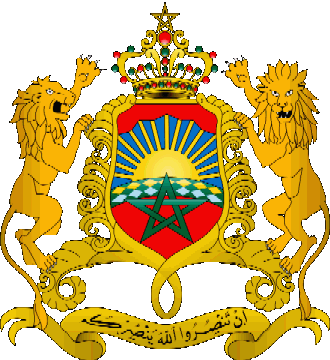
VENUE
- MOROCCO
Morocco is a country is a country in the Maghreb region of North
Africa. Geographically, Morocco is characterized by a rugged mountainous interior and large portions of desert. It is one of only three countries (with Spain and France) to have both Atlantic and Mediterranean coastlines. The Arabic name al-Mamlakah al-Maghribiyah (Arabic: المملكة المغربية, meaning "The Western Kingdom") and Al-Maghrib (Arabic: المغرب, meaning "The West") are commonly used as alternate names.
Morocco has a population of over 33 million and an area of 446,550 km2 (172,410 sq mi). Its political capital is Rabat, although the largest city is Casablanca; other major cities include Marrakesh, Tangier, Tetouan, Salé, Fes, Agadir, Meknes, Oujda, Kenitra, and Nador. A historically prominent regional power, Morocco has a history of independence not shared by its neighbours. Its distinct culture is a blend of Arab, indigenous Berber, Sub-Saharan African, and European influences.
Morocco claims the non-self-governing territory of Western Sahara as its Southern Provinces. Morocco annexed the territory in 1975, leading to a guerrilla war with indigenous forces until a cease-fire in 1991. Peace processes have thus far failed to break the political deadlock.
Morocco is a constitutional monarchy with an elected parliament. The King of Morocco holds vast executive and legislative powers, especially over the military, foreign policy and religious affairs. Executive power is exercised by the government, while legislative power is vested in both the government and the two chambers of parliament, the Assembly of Representatives and the Assembly of Councillors. The king can issue decrees called dahirs which have the force of law. He can also dissolve the parliament after consulting the Prime Minister and the president of the Constitutional court.
Morocco's predominant religion is Islam, while the official languages are Berber and Arabic. Moroccan Arabic, referred to as Darija, and French are also widely spoken.
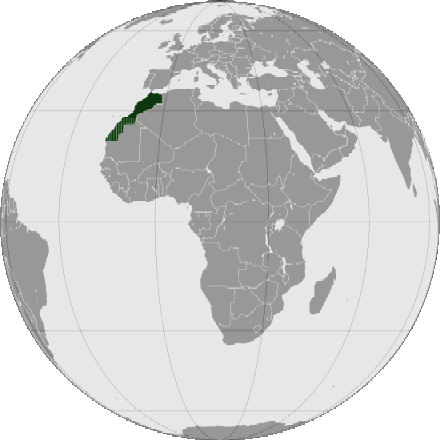
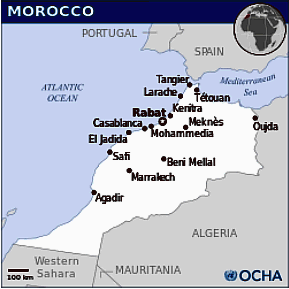
World
and local location maps


VENUE
- TANGIER
Tangier is a major city in northern Morocco with a population of about 1,850,000 (2014 estimates). It is located on the North African coast at the western entrance to the Strait of Gibraltar where the
Mediterranean Sea meets the Atlantic Ocean off Cape Spartel. It is the capital of the Tangier-Tetouan Region and of the Tangier-Asilah prefecture of Morocco.
The history of Tangier is very rich, due to the historical presence of many civilizations and cultures starting from before the 5th century BC. Between the period of being a strategic Berber town and then a Phoenician trading center to the independence era around the 1950s, Tangier was a refuge for many cultures. In 1923, Tangier was considered as having international status by foreign colonial powers, and became a destination for many European and American diplomats, spies, writers and businessmen.
The city is currently undergoing rapid development and modernization. Projects include new tourism projects along the bay, a modern business district called Tangier City Center, a new airport terminal and a new football stadium. Tangier's economy is also set to benefit greatly from the new Tanger-Med port.
However, the city suffers from widespread poverty, real-estate corruption, and high rates of crime. This results in sharp contrasts between rich and poor crowded neighborhoods. The latter fueled the 20 February Movement popular uprisings that shook Morocco strongly in 2011.
Tangier's sport team I.R.T. (or Ittihad Riadi de Tanger) is a prominent football club with a large following base. Tangier will be one of the host cities for the 2015 Africa Cup of Nations football tournament, which shall be played at the new Ibn Batouta Stadium and in other cities across Morocco.
Most of the inhabitants of Tangier speak the Moroccan Arabic dialect, mainly influenced with Spanish. About 25% of the city inhabitants speak Berber in their daily lives. Written Arabic is used in government documentation and on road signs together with French. French is used in universities and large businesses. English and Spanish are well understood in all hotels and tourist areas.
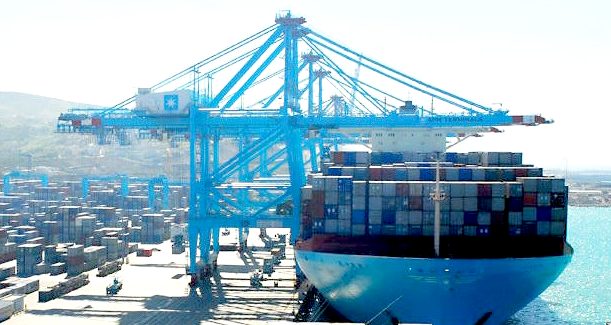
TANGIER
ECONOMY
Tangier is Morocco's second most important industrial centre after Casablanca. The industrial sectors are diversified: textile, chemical, mechanical, metallurgical and naval. Currently, the city has four industrial parks of which two have the status of free economic zone (see Tangier Free Zone).
Tangier's economy relies heavily on tourism. Seaside resorts have been increasing with projects funded by foreign investments. Real estate and construction companies have been investing heavily in tourist infrastructures. A bay delimiting the city centre extends for more than 7 kilometres (4 miles). The years 2007 and 2008 were particularly important for the city because of the completion of large construction projects; These include the Tangier-Mediterranean port
("Tanger-Med") and its industrial parks, a 45,000-seat sports stadium, an expanded business district, and a renovated tourist infrastructure.
Agriculture in the area of Tangier is tertiary and mainly cereal.
The infrastructure of this city on the strait of Gibraltar consists of a port that manages flows of goods and travellers (more than one million travellers per annum) and integrates a marina with a fishing port.
Artisanal trade in the old medina (old city) specializes mainly in leather working, handicrafts made from wood and silver, traditional clothing, and shoes of Moroccan origin.
The city has seen a fast pace of rural exodus from other small cities and villages. The population has quadrupled during the last 25 years (1 million inhabitants in 2007 vs. 250,000 in
1982). This phenomenon has resulted in the appearance of peripheral suburban districts, mainly inhabited by poor people, that often lack sufficient infrastructure. The city's postcode is 90 000.
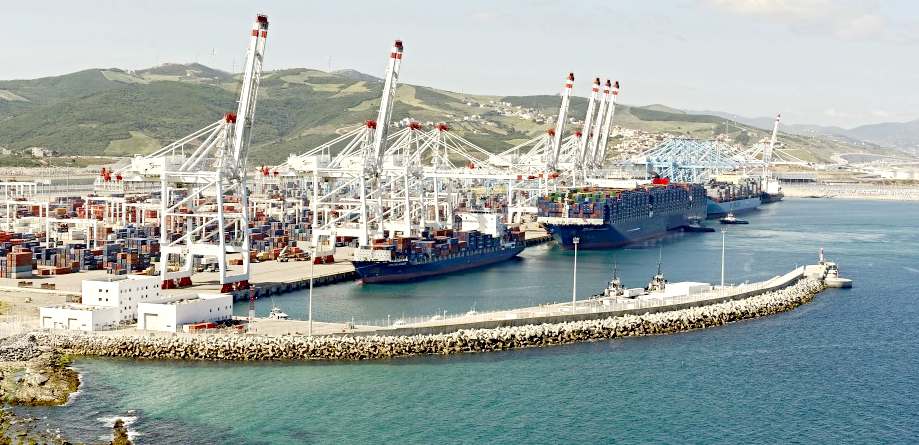
TRANSPORT
A railway line connects the city with Rabat, Casablanca and Marrakech in the south and Fès and Oujda in the east. The service is operated by ONCF. The Rabat-Tanger expressway connects Tangier to Fès via Rabat 250 kilometres (155 miles), Settat via Casablanca 330 km (205 mi) and Tanger-Med port. The Ibn Batouta International Airport (formerly known as Tangier-Boukhalef) is located 15 km (9 mi) south-west of the city centre.
The new Tanger-Med Port is managed by the Danish firm A. P. Moller-Maersk Group and will free up the old port for tourist and recreational development.
Tangier's Ibn Batouta International Airport and the rail tunnel will serve as the gateway to the "Moroccan Riviera" the coast between Tangier and Oujda. Traditionally the north coast was an impoverished and underdeveloped region of Morocco but it has some of the best beaches on the Mediterranean and is likely to see rapid development.
The Ibn Batouta International Airport has been being expanded and modernized to accommodate more flights. The biggest airline at the airport is Royal Air Maroc. In addition, a TGV high-speed train system is being built. It will take a few years to complete, and will become the fastest train system in North Africa.
EVENT
SPONSORS and ASSOCIATES
CONTACTS
Mövenpick Hotel
Route De Malabata Baie De Tang
Tanger 90000, Morocco
Tel:
+212 539 32 9300 / 50
Email: hotel.tangier.casino@moevenpick.com

Toll free calls:
All countries in Africa and Middle East | English, Arabic | +20 22 4182282*
Bahrain | English, Arabic | 80001 991
Egypt | English, Arabic | 0800 44 11111
Jordan | English, Arabic | 0800 222 02
Kuwait | English, Arabic | 2 225 3228**
Qatar | English, Arabic | 800 2001
Saudi Arabia | English, Arabic | 800 124 29 29
United Arab Emirates | English, Arabic | 800 4934
Asia and Pacific Region
Australia | English | 1800 177 619
China | Mandarin, English | 400 120 5943
Hong Kong | Cantonese, English | 800 967936
Japan | Japanese, English | 0120 914 356
Korea | Korean, English | 0079 8651 7535
Singapore | English | 1800 232 5800
Thailand | English | 001 800 11 002 8043
Europe
Austria | German | 0800 293 428
Belgium | English | 0800 18739
France | French | 0800 908717
Germany | German | 0800 84 99 99 9
Ireland | English | 1800 554138
Italy | Italian | 800 876169
Spain | English | 900 994194
Switzerland | German, Italian, French | 0800 89 99 99
The Netherlands | English | 0800 0221135
United Kingdom | English | 0800 898317
North America
USA and Canada | English | 1800 34 46 83 5
* local call charges apply
** not toll-free
Tangier Ibn Battouta Airport is under a 30-minute drive from the Mövenpick Hotel & Casino Malabata Tanger. Tangier city centre is within a 10-minute drive away.
International Maritime Organization
4, Albert Embankment
London,
SE1 7SR
United Kingdom
Tel +44 (0)20 7735 7611
Fax +44 (0)20 7587 3210
Website:
http://www.imo.org/
Email: info@imo.org




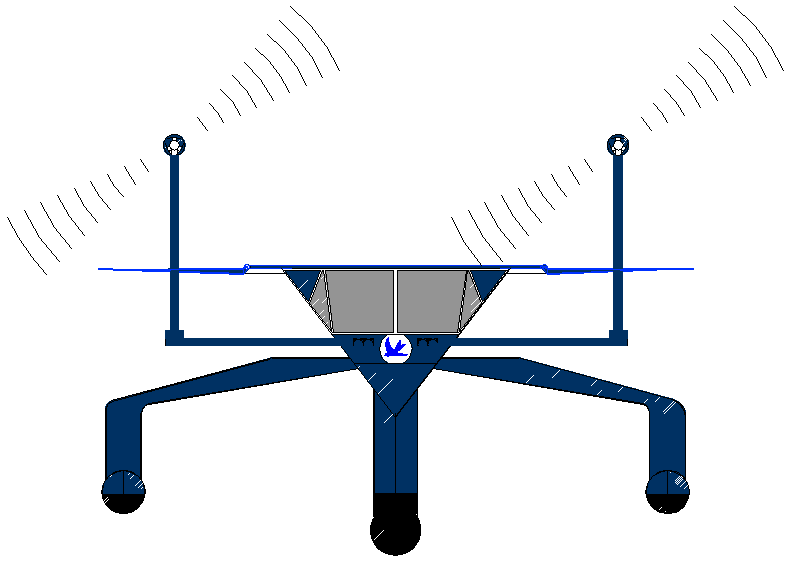
PATENT
PENDING: Is
this innovation still ahead of its time? The
Bluefish ZZC+
platform has a total energy harvesting capacity around 176kW (235hp),
giving an Energy Harvested to Displacement ratio (EH/D) of 3.52kW/ton
(4.72hp/ton). Larger versions of this format could be the emission
free cargo ships of the future. The average cruising speed of this vessel
will be higher that the standard hull 50m (163ft) hull on the waterline,
giving a better speed/length ratio [nominal]. The OAL is 56M (183ft). The sprint
speed of this craft will be in the 20+ knot region. The cost of diesel fuel to
cruise this ship continuously for a year would be approximately: .29gals/hp x
117 x 24 x 365 = $297,226.80 (£183,393.99) In ten years that would be
$2.97M (£1.83M). There is though no fuel cost
during normal operations. Fuel for thought!

OTHER
TOPICS
OF INTEREST
Product
Category
Acoustics
Batteries
Beacons & Buoys
Benthic Sampling Equipment
Buoys & Buoyancy Materials
Cathodic Protection
Compasses
Composite
Materials
Deck Machinery
Diving Equipment, Contractors & Vessels
Echo Sounders
Electric
Motors
Global Information Systems
Gyrocompasses
Hydrological Instruments
Launch & Recovery Systems
Leak Detection & Sealing
Life Rafts
& Rescue Boats
Life Support Systems
Mapping Systems
Marine Engineering
Marine Equipment - General
Marine Geotechnical Investigations
Marine Site Investigations
Marine Systems
Naval Architecture
Offshore
Support & Accommodation Vessels
Oilfield,
Drilling & Fishing
Oil Spill Response
Patrol Craft
Position Fixing Systems
Propulsion Systems
Rescue & Survival Equipment
Robotics
Ropes - Woven, Wire & Mooring
ROVs
Safety, Survival & Security Equipment
Satellite Navigation Equipment
Seismic Equipment
Shipbuilding, Repair & Conversion
Sonar & Systems
Sonobuoys
Submarines
& Submersibles
Submersible Equipment
Subsea Production Systems
Towed Arrays & Bodies
Underwater Communications
Underwater Vehicles
Workboats
Service Category
Bathymetric
Survey
Charts & Charting
Coastal Protection
Current Measurement
Data Interpretation, Management & Processing
Diving
Dynamic Positioning
Earth Sciences
Ecological Health & Pollution
Environmental Management
Hydrographic
Services
Maritime Surveillance
Navigation & Position Fixing
Ocean Currents
Ocean Modeling
Ocean Observation
Oceanographic Survey
Oceanology
Port Security
Seabed Sampling
Seismic Survey & Acquisition
Systems Integration
Target Acquisition & Recognition
Temperature Measurement
Water Measurement, Sampling
End User Sector
Oil & Gas
Coastal Engineering
Aquaculture
Renewables
Ocean Science
Defense / Security
Telecommunications

LINKS
IMO
World
Maritime Day D2014 World
Maritime Day NA UN
United Nations maritime day Wikipedia
International_Maritime_Organization Wikipedia
Morocco International
Maritime Organization IMO World
Maritime Day Morocco Marine
Link maritime world happy day Trip
Advisor Tangier_Tangier_Tetouan_Region Vacations Wiki
Travel Tangier Lonely
Plane Morocco Mediterranean Coast Tangier Wikipedia
Tangier Trip
Advisor Review Movenpick_Hotel_Casino_Malabata-Tangier Moevenpick
hotels africa morocco tangier M
Moevenpick hotel
tangier http://www.moevenpick-hotels.com/en/africa/morocco/tangier/hotel-tangier/overview/ http://m.moevenpick-hotels.com/tangier http://www.maroc.ma/ http://www.imo.org/ http://www.worldmaritimedaymorocco.com/en http://www.marinelink.com/news/maritime-world-happy377957.aspx http://www.economist.com/events-conferences/americas/world-ocean-summit-2014 http://www.imo.org/About/Events/WorldMaritimeDay/WMD2014/Pages/default.aspx http://www.worldmaritimedayna.org/about.htm http://www.un.org/en/events/maritimeday/ http://en.wikipedia.org/wiki/International_Maritime_Organization http://www.tripadvisor.co.uk/Tourism-g293737-Tangier_Tangier_Tetouan_Region-Vacations.html http://wikitravel.org/en/Tangier http://www.lonelyplanet.com/morocco/the-mediterranean-coast-and-the-rif/tangier http://en.wikipedia.org/wiki/Tangier World
Ocean Summit 2014 http://en.wikipedia.org/wiki/Morocco Oceanology
International Arabian
oil and gas carbonate_evolution http://www.maritimeindustries.org/Events/Oceanology-International-China-2013/9255
Institute
of Electrical and Electronics Engineers — Oceanic Engineering
Society
Marine
Technology Society
Society
of Exploration Geophysicists
Society
of Naval Architects and Marine Engineers
The
Minerals, Metals & Materials Society
Brazilian
Petroleum, Gas and Biofuels Institute
International
Association of Drilling Contractors
Petroleum
Equipment Suppliers Association
|















